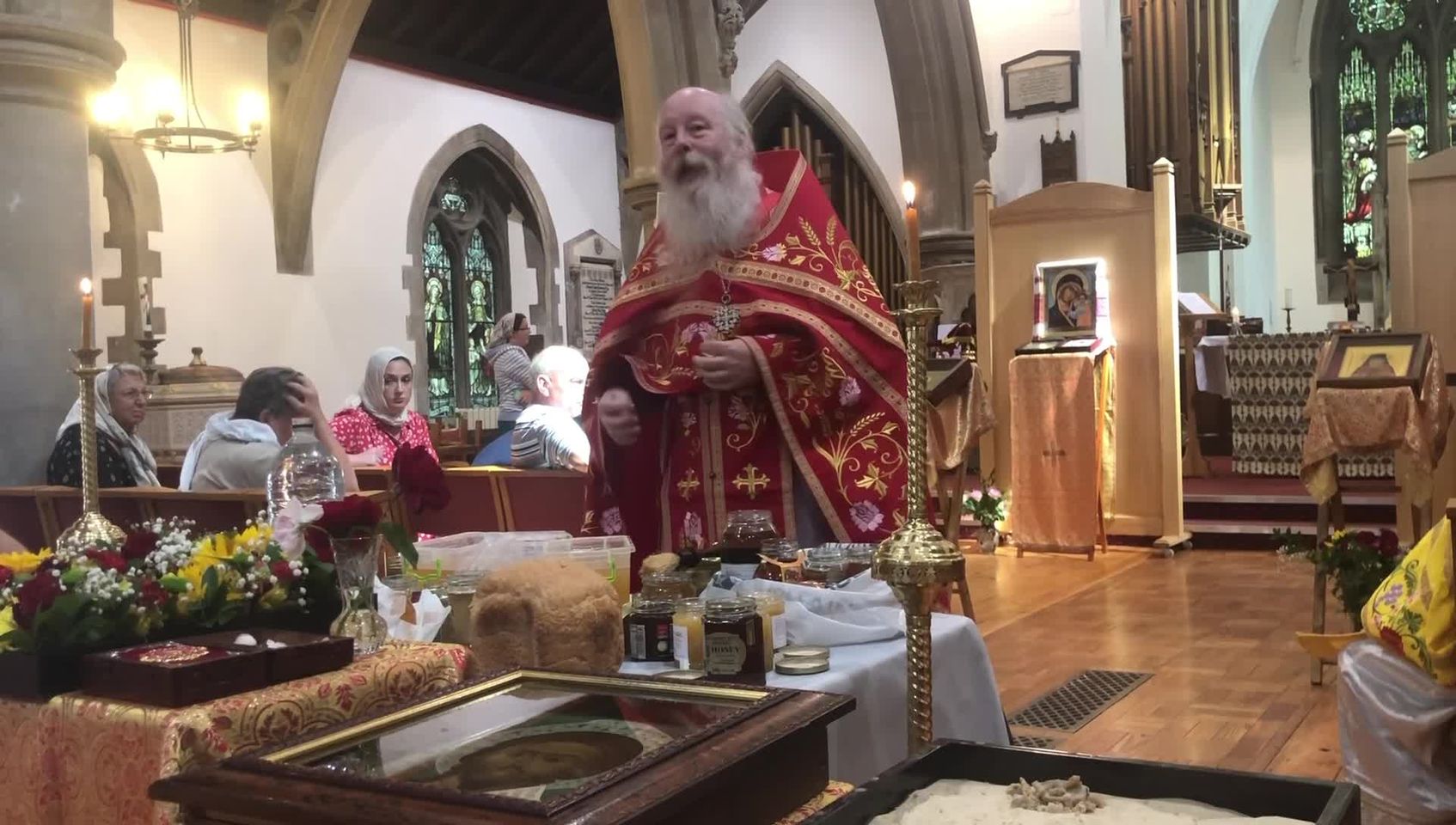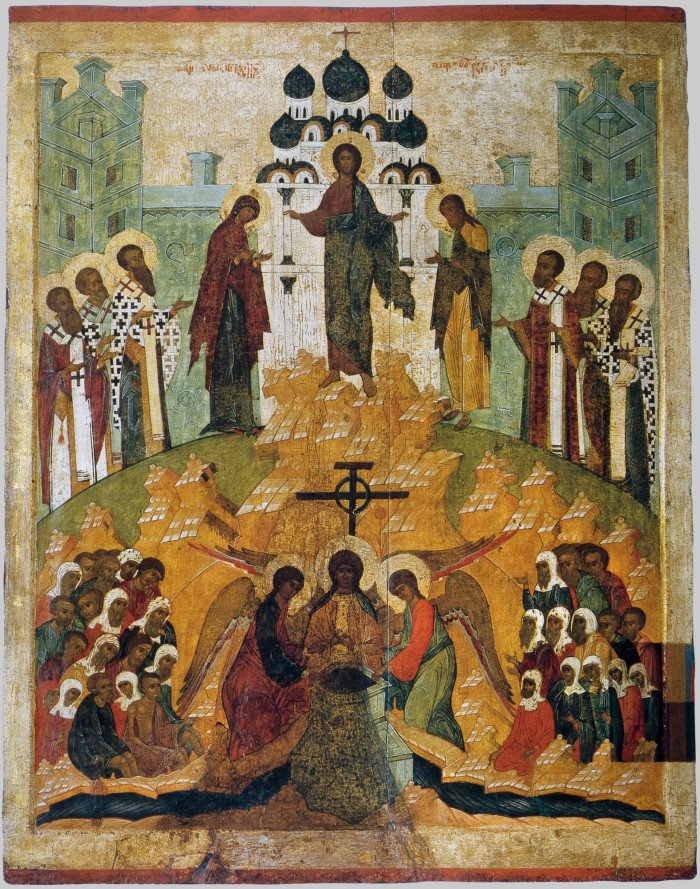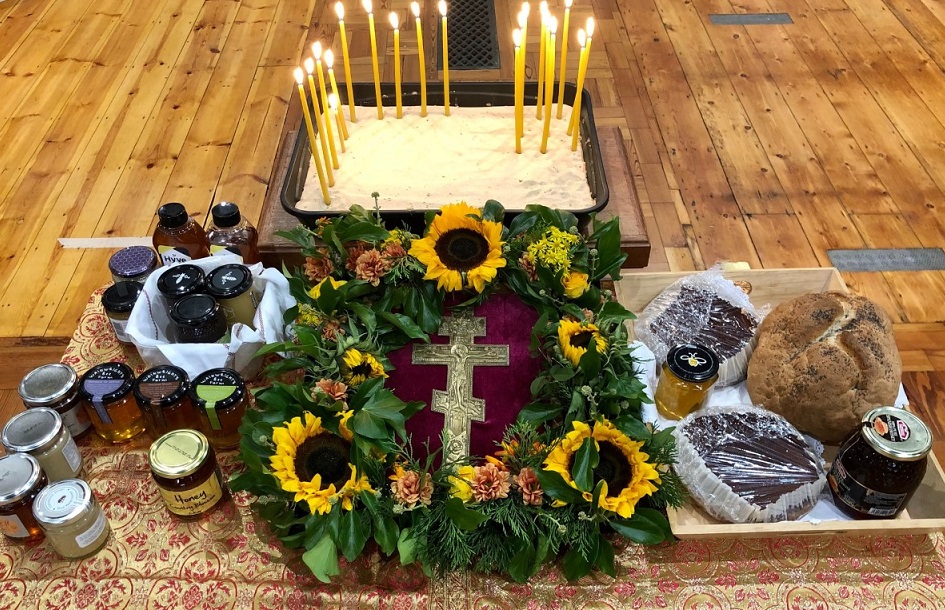
After the Liturgy on Sunday, several people asked me why we blessed honey, and this reminded me of a question from a member of Nazareth House staff: ‘Why did you bless the beehives?’
Why did we bless these things?
Why did we bless Margarita’s house a little over a week ago?
Indeed, why do we bless vestments, holy vessels, parishioner’s cars, our daily meals and so many other things? Why do we bless water at Theophany, and at other times with the Lesser Blessing? Why do we ask blessings for journeys, for new ventures, for new jobs?
When we bless the harvest, be it honey, grains or fruits, we acknowledge the Lord’s goodness as we ‘return’ them to Him in the knowledge that He is the source of every gift, and our Sustainer, Who constantly satisfies us with His earthly blessings.
In the broadest sense of evharistia / thanksgiving, the liturgical blessing acknowledges the very fact that God’s gifts are His, not ours. We also set these things aside, and dedicate them to the Lord, particularly when we bless homes, vehicles, and objects – especially those used in sacred worship.
Just as the priest chants, ‘Thine own of Thine own do we give Thee’ when the Deacon raises the eucharistic-offerings after the words of institution in the Liturgy, so we offered Him ‘His own of His own’ in the honey-blessing, as we shall likewise do with grapes and other fruits at the end of the Transfiguration Liturgy when the words of the prayer will state this with perfect clarity:
‘O Master, Lord our God, Who commandest everyone to bring as an offering Thine own of Thine own, and grantest unto them in return Thine eternal good things…’
Beyond this recognition in various blessings, we receive the Grace of God who truly sanctifies that which is offered, and we partake of this Grace when we eat or drink that which has been blessed and sanctified, or when we are anointed with blessed oil.
At the Jordan blessing of water at Theophany, we pray,
‘Make it a fountain of immortality, a gift of sanctification, the remission of sins, the healing of infirmities, the destruction of the demons, unapproachable by hostile powers, filled with angelic might. And may it be unto all those who shall draw it, and shall partake of it unto the purification of their souls and bodies, unto the healing of their passions, unto the sanctification of their homes, and unto every expedient service.’
When we bless the artos at Pascha, we pray,
‘And count worthy we who offer this, and they that shall kiss it and taste of it, to become partakers of Thy heavenly blessing; and by Thy might drive away from us every sickness and infirmity, grant health unto all.’
When we bless cheese, butter, milk and eggs, on the same festal night, we pray
‘that, while enjoying these, Thy generously presented gifts, we may also be satisfied with Thine unspeakable grace, for the sake of the bright three-days resurrection from the dead of our Lord Jesus Christ…’
At the blessing of wheat, wine and oil at the vigil service we pray that the Lord will
‘sanctify the faithful that partake of them.’
During Sunday’s blessing of honey, we asked that
‘all tasting of it, receiving it and eating it, may find good health, and by this nourishment be satisfied and filled with all good things.’
And… when we bless the fruit offered at Friday’s Transfiguration Liturgy, we shall pray,
“… do Thou now bless this fruit of the vine lying here, and make us thy servants who eat of it, partakers of the True Vine. Keep our lives from harm and ever give us peace that none can take away…”
Through these blessings, tasting and seeing is both physical and spiritual, as the Lord communicates the spiritual gifts of His Grace through His sanctified creation: Grace that strengthens us; Grace that heals us: Grace that purifies us both physically and spiritually.
God communicates spiritual gifts through the offering of His creation to Him as ‘Thine own of Thine own…’, as through their sanctification and dedication, physical things become the communicative medium of God’s Grace.
Through the liturgical blessings in our Christian life, we live it eucharistically and doxologically, endless rendering God glory and thanksgiving and, as we enjoy His gifts, we participate in His goodness and also become spiritual participators in His manifold blessings.
In blessing His gifts and in enjoying that which is blessed we physically and spiritually commune with His love and goodness, as we experience to the invitation of the Psalmist, “O taste and see, the Lord is good.”
In Christ – Hieromonk Mark

